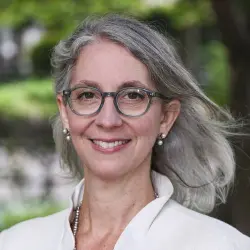This policy memo was drafted by Stacey Campo, Abe Fernandez, Emily Germain, Hayin Kimner, Anna Maier, Tiffany Miller, Jose Muñoz, Jeannie Oakes, and Rebecca Winthrop, with numerous additional community school stakeholders that have signed in support.
The Learning Policy Institute, the Center for Universal Education at Brookings, Children’s Aid National Center for Community Schools, the Coalition for Community Schools and the below members of the Community Schools Forward task force provide this policy memo to the U.S. Department of Education (ED) related to community schools and the federal Full-Service Community Schools (FSCS) Grant Program, planned national and local evaluations, and supporting new entrants into the field.
The memo begins by describing the most recent turn to community schools as a response to the United States’ persistent failure to provide for the well-being of the most vulnerable children and families, a reality exacerbated by the COVID-19 pandemic. It then argues for community schools, not as a substitute for other much-needed policy changes in support of children and families, but as a way to employ a long-standing whole-child approach to schooling that coheres with a growing body of research about how all children learn. From there, we explain how the vision and theory that have emerged from this knowledge base, together with the accumulated wisdom from the field, should drive support for implementation and evaluation that take the complexity of community schools into account. The memo concludes with the following five recommendations that should help policymakers and education leaders translate the burgeoning interest in community schools into practices that live up to the promise of this transformative approach
- Frame policies, grant competitions, and undergo evaluations to recognize that community schools require guidance, administrative oversight, and accountability that specify the core components of a community school program and leave the particulars of how those components come to life to local communities and schools. At the same time, community schools should be framed as a comprehensive school transformation strategy. The core components of the strategy are intended to dynamically interact with one another. Individually, they have limited impact, but when integrated are mutually reinforcing and powerful.
- Provide sufficient support and resources for technical assistance that treats community school implementation as complex, developmental, and embedded in local context. There is a need to build the capacity of practitioners at all levels to achieve meaningful outcomes.
- Conduct evaluations of efforts to implement community schools that attend to the strategy’s complexity. Any evaluation that does not include data from multiple sources—such as administrative, survey, qualitative, and observation and from all stakeholders—will not result in a complete picture of the community school strategy with its integrated approach.
- Identify community school outcomes that reflect the comprehensive and integrated nature of the strategy. Evaluations should consider outcomes across multiple categories, including: student performance and engagement, individual and collective well-being, quality teaching and learning, culture and climate, and inclusion and collaboration. Outcomes also must be assessed at the student, school, and community level.
- Ground evaluations in the school’s or system’s stage of development, first conducting a process of implementation evaluation before designing and conducting more rigorous impact studies. Further, all evaluations should be grounded in community school principles and theory of action.
It is our hope that this memo and the work of the task force continue to support and guide new community school entrants in the field and local, state, and federal policymakers looking to support this important work.
Signatories:
Robert Balfanz, Director , Everyone Graduates Center, Johns Hopkins University
Jennifer Blatz, President and CEO, Strive Together
Cory Bowman, Associate Director, Netter Center for Community Partnerships, University of Pennsylvania
Jitu Brown, National Director, Journey for Justice Alliance (J4J)
Dr. Pamela Cantor, Founder and Senior Science Advisor, Turnaround for Children
Linda Darling-Hammond, Charles E. Ducommun Professor of Education Emeritus, Stanford University; President, Learning Policy Institute (LPI)
Dena Donaldson, Community Schools Organizer, Texas American Federation of Teachers
Cyrus Driver, Senior Director, National Public Education Support Fund
Dr. Amy Ellis, Director, UCF Center for Community Schools, University of Central Florida
Abe Fernández, Vice President of Collective Impact and Director, National Center for Community Schools, Children’s Aid
Denise Forte, The Education Trust
Jodi Grant, Executive Director, After School Alliance
Jim Grim, Director, University/Community School Partnerships, IUPUI Office of Community Engagement – Indiana; Co-Chair, State Coalitions Network, IEL
Donnie Hale, Executive Director for Outreach and Academic Programs/Professor in Education, Florida Memorial University; Co-Chair, Community School Leadership Network, IEL
Zaretta Hammond, Owner and Chief Instructional Strategist, Transformative Learning Solutions
Kristen Harper, Vice President for Public Policy and Engagement, Child Trends
Dr. Michael Hester, Superintendent, Batesville School District, AR
Tracy Hill, Executive Director of the Family and Community Engagement Department, Cleveland Metropolitan School District
Reuben Jacobson, Senior Professorial Lecturer and Director of the Education Policy and Leadership Program, American University
Sarah Jonas, Senior Executive Director, Office of Community Schools, New York City Department of Education (NYCDOE)
Kei Kawashima-Ginsberg, Newhouse Director, Center of Information and Research on Civic Learning and Engagement at Tufts (CIRCLE)
Jose Muñoz, Director, Coalition for Community Schools, Institute for Educational Leadership (IEL)
Jeannie Oakes, Presidential Professor Emeritus in Educational Equity, University of California, Los Angeles; Senior Fellow in Residence, Learning Policy Institute (LPI)
Sarah Peterson, Senior Director of Attendance, Research and Innovation, Office of Community Schools, New York City Department of Education (NYCDOE)
Jane Quinn, Director 2000-2018, National Center for Community Schools, Children’s Aid
Rey Saldaña, President and CEO, Communities in Schools
Dr. Karen Sanchez-Griego, Superintendent, Cuba Independent School District, New Mexico
Katarina Sandoval, Deputy Secretary of Academic Engagement and Student Success, New Mexico Public Education Department
Kyle Serrette, Senior Policy Analyst, National Education Association (NEA)
Rebecca Winthrop, Senior Fellow and Director, Center for Universal Education, Brookings Institution
The Brookings Institution is committed to quality, independence, and impact.
We are supported by a diverse array of funders. In line with our values and policies, each Brookings publication represents the sole views of its author(s).








Commentary
Community schools implementation and administration: Policy opportunities
March 28, 2022